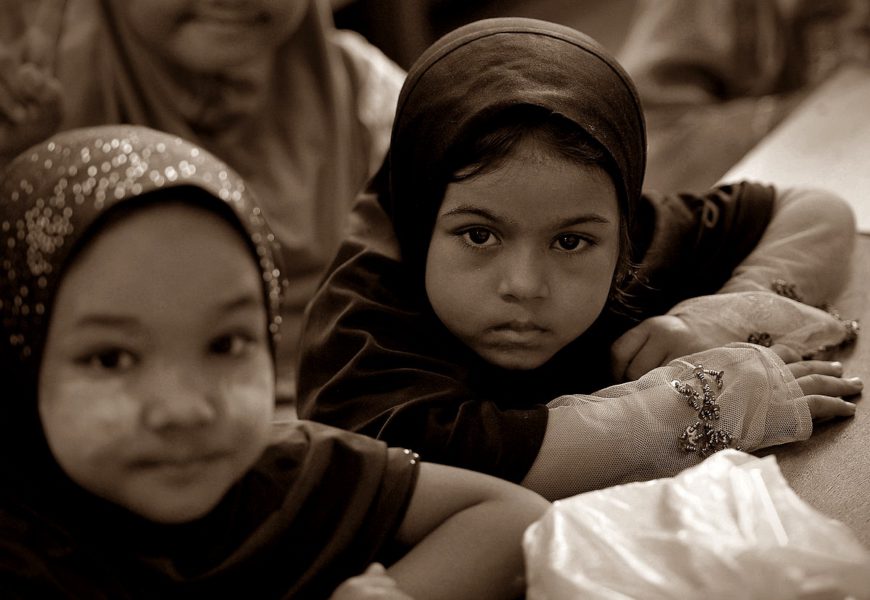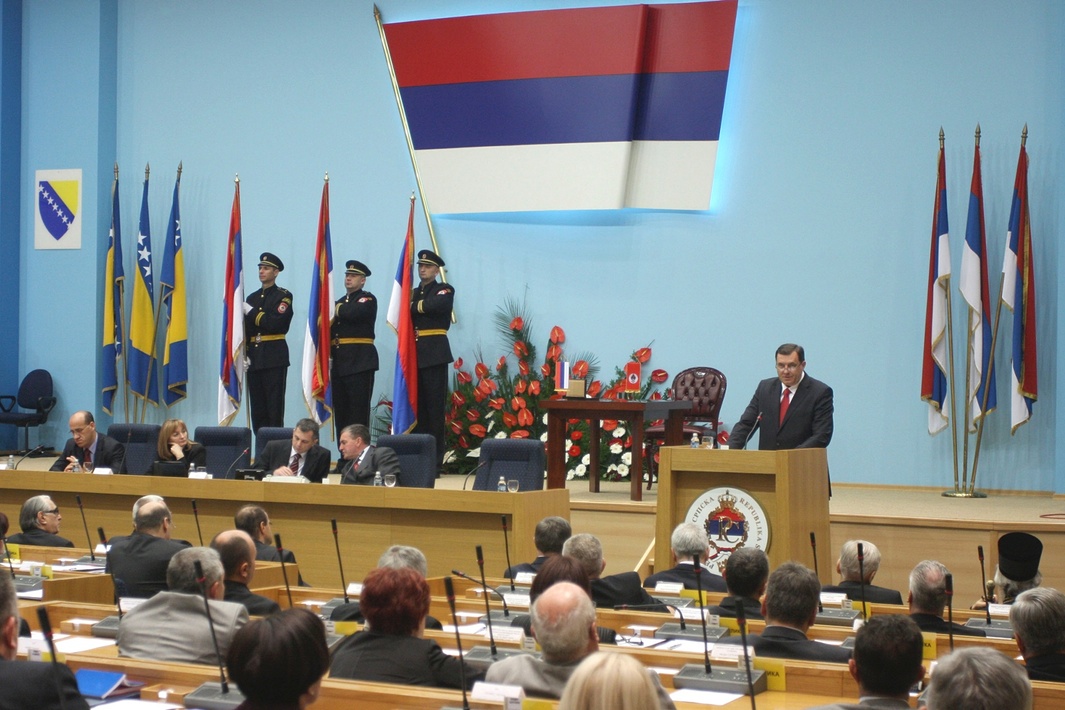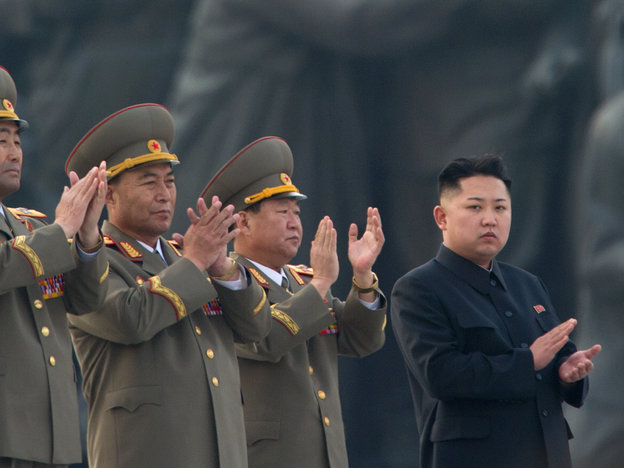Renewed Conflict
The Rohingya are a Muslim ethnic minority within Myanmar, and many had settled in the Rakhine State while it was still a British colony. They are not considered to be legitimate residents by the government of Myanmar, and have repeatedly been targets of Myanmar’s military in recent years. In 2012, Myanmar militants attacked Rohingya residents, sending tens of thousands fleeing for safety. A military attack was again made against the Rohingya during October 2016, as a form of retaliation against Rohingya rebels, who had attacked Myanmar border posts. The most recent large scale emigration of Rohingya from Myanmar is due to ongoing combat between the Arakan Rohingya Salvation Army (ARSA) and Myanmar militants. In August, ARSA began its aggression against several police and army posts, leading to an aggressive military retaliation from Myanmar. Hundreds of thousands of Rohingya residents have been forced to flee their homes due to the military conflicts.
Desperation
Myanmar’s military have been extremely violent towards the Rohingya living in Rakhine State. In addition, the military has sought to systematically destroy the Rohingya’s properties by way of arson. Almost a third of the villages that once housed the Rohingya are now vacant, according to Myanmar government reports. Widespread rape and indiscriminate killing of the Rohingya have been reported through many testimonies of fleeing Rohingya. Myanmar’s actions have been labelled as a “textbook example of ethnic cleansing” by the United Nations. As a result, within weeks of the initial attack by the Myanmar government, Rohingya escaping Myanmar for safety have amounted to 400,000. As of 6 October, this number has risen to 515,000.
The brutality of the Myanmar military was far from the end of the horrors the Rohingya faced. Some Rohingya have attempted to enter Bangladesh via a sea route to Shah Porir Dwip Island, a journey which has cost lives, as inadequate watercraft led to the deaths of many by drowning. Similar is the case with those who have attempted to cross the Naf River from areas close to Maungdaw, Myanmar. Those who do not live close to the waters walked for days to reach Bangladesh.
As Rohingya refugees poured into Bangladesh, the condition of refugee camps deteriorated and became less capable of providing sufficient aid. A report by the United Nations Children’s Fund (UNICEF) stated aid is required immediately by at least 200,000 Rohingya children, and the number of children that have been driven apart from their parents due to circumstance have reached over 1,000. Access to clean drinking water and toilets are rare in the refugee camps; breast-feeding has become increasingly difficult as food and water supplies dwindle, which has become a growing problem for new parents. The dreadful situation faced by the Rohingya in the Bangladeshi refugee camp was compounded by the Monsoon season; many were soaked to the skin as the Monsoon rains poured into the make-shift shelters. The desperation of the Rohingya are clear for all to see, so why isn’t anyone doing anything?
Aung San Suu Kyi
Myanmar’s government has a complex structure, with power shared between the nation’s military leaders, who represent the authoritarian government which ruled Myanmar from 1962 to 2011, and Aung San Suu Kyi, the democratically elected de facto leader of Myanmar. Having received the Nobel Peace Prize for her persistence in the fight to democratize Myanmar and human rights activism, Suu Kyi has been heavily criticized for her silence and lack of intervention during the Rohingya crisis. In his open letter to Suu Kyi, fellow Nobel laureate Archbishop Desmond Tutu asserted that, “. . . if the political price of your ascension to the highest office in Myanmar is your silence, the price is surely too steep.” George Monbiot argues in his Op-ed that Suu Kyi’s Nobel Prize should be retracted for her silence. In her 19 September speech, Suu Kyi has stated that “As a responsible member of the community of nations, Myanmar does not fear international scrutiny,” a phrase which has been repeatedly quoted to illustrate her unwillingness to address the Rohingya crisis.
Part of Suu Kyi’s inaction can be attributed to the limitations of her power within Myanmar’s government. As was stated by her during her speech, Myanmar is still “. . . in the process of nurturing [its] nascent and yet imperfect democracy.” True enough, the military has full control over Myanmar’s security and defence, both in terms of policy and in its implementation. Suu Kyi does not exercise control over the military’s violence towards the Rohingya. In addition, Vina Nadjibulla, a peacekeeping expert and former UN staff, commented that Suu Kyi is in a difficult situation and trying to balance the pressure she is feeling from the international community with the domestic political and security realities. Should Suu Kyi choose to rebel aggressively against military actions, Myanmar’s political order and her position may be jeopardised. Silence, in the face of the horrors faced by the hundreds of thousands of Rohingya fleeing from persecution, is certainly too high a political price to pay. In the case of Aung San Suu Kyi, the silence, at least in part, can be attributed to her political status.
However, Suu Kyi’s passivity towards the ever more desperate Rohingya crisis cannot all be attributed to the political system of Myanmar. While her Nobel speech was laden with emphasis on her role as a champion for human rights in Myanmar, and implored the international community to remember the forgotten, Suu Kyi has shown what some has read as discrimination towards Muslims. Suu Kyi made no efforts to show her condolences when Ko Ni, a Muslim advisor of hers was assassinated, despite an outpouring of public grief. Moreover, Suu Kyi’s party refused to be associated with Muslim candidates, and as a result, the Burmese parliament is currently absent of Muslims. Lastly, Suu Kyi’s government has not bothered with terminating laws that are discriminatory of Muslims.
Despite the lack of support Suu Kyi’s government has given its Muslim citizens, her 19 September speech is also a reminder to all that Myanmar is still undergoing the “. . . transition to democracy after a half century or more of authoritarian rule,” and that it is “. . . in the process of nurturing our nascent and yet imperfect democracy.” The transition to democracy also means that Suu Kyi’s political pull on the situation is limited by the military. Suu Kyi has little say over Myanmar’s border control, both in policy and in action, as they are the sole responsibility of Burmese military leaders.
Response from the International Community
UNHCR has asked the international community for $84 million USD to support the Rohingya currently residing in Bangladesh. The Canadian government has given $12.25 million CAD (roughly $9.8 million USD) to the cause, and donations from the Canadian public have to date amounted to $300,000. In addition to providing monetary aid, Ms. Nadjibulla stressed the importance of nations standing in solidarity with the Rohingya and Bangladesh, as well as to continue placing pressure on the Burmese government through public statements. While the options to assist the Rohingya may be limited for individual nations, IGOs, such as the United Nations and NATO, can have a strong impact on the Rohingya crisis; however, they have provided very limited help to their cause.
The United Nations has repeatedly criticized the ethnic cleansing conducted by the Burmese military, and Suu Kyi’s lack of response. In addition to condemning the actions of Myanmar’s government against the Rohingya, the Secretary General of the UN has also voiced his recommendations to the Burmese government to “end military operations, allow . . . access to those in need, and ensure the . . . return of displaced Rohingya to their homes.” However, the UN has not actively interfered with the Rohingya crisis. As previously mentioned, the UNHCR has declared a Rohingya Emergency, and has been maintaining refugee camps in Bangladesh. Despite the gravity of the situation, the response from the UN Security Council has been limited with no serious discussion of a possible peacekeeping missions to Myanmar to secure the safety of the Rohingya within Myanmar, or to arrest the ongoing violence. Ms. Nadjibulla explained that the lack of UN SC action is likely due to the dynamics of the Permanent Members (P5) of the Council, particularly China and Russia. Due to its economic and geopolitical interests in Myanmar, China, along with Russia, have consistently voted against UN action in Myanmar during the past few years. As members of the P5, China and Russia’s vetoes have prevented the Council from taking effective measures to address the Rohingya crisis. As criticisms of Myanmar have been ineffective in halting the ongoing crisis, the United Nations should consider a more assertive course of action.
In addition to its reluctance to actively intervene on behalf of the Rohingya, the United Nations is likely to have played a role in the currently ongoing slaughtering of Rohingya and their exodus. The UN has been present in Myanmar since 1948 as a UN Country Team, which has most recently been led by Renata Lok-Dessallien, its resident coordinator. According to Caroline Vandenabeele, an UN official who has specialized in aid in areas including Sri Lanka and Afghanistan, Dessallien’s policies played a key role in the escalation of the Rohingya crisis. In order to effectively deliver aid to the Rohingya amidst angry Burmese Buddhists, Dessallien chose to compromise on the issue of human rights. To this end, she has refused entry of human rights activists into the Rakhine state, and minimized open advocacy for the Rohingya. This tactic was intended to win the cooperation of the Burmese government and local Buddhists, which was needed to ensure the delivery of aid to the Rohingya. However, it also created a vacuum of advocation and dialogue regarding the Rohingya within the United Nations. UN officials no longer brought up the Rohingya during important meetings, and those who did received serious repercussions; the term “Rohingya” became invisible in the UN’s written statements. This, coupled with the ongoing dehumanization of the Rohingya by many Burmese citizens, which Vandenabeele has observed to be common in Myanmar, were seeds which ultimately blossomed into the killing and exodus of the Rohingya in late August.
Myanmar’s neighbours have been mixed in their response to the Rohingya crisis. India and China, both of which share a border with Myanmar, have stood alongside the Burmese government on the Rohingya issue. During the September 28th meeting at the UN regarding the desperation of Rohingya situation, China, along with Russia, were two notable nations which did not condemn the actions of Myanmar. However, despite its lack of public support for the Rohingya, China has, to date, given Bangladesh 150 tons of material assistance towards the Rohingya. While Chinese officials did not explicitly refer to the Rohingya in their statements regarding the purpose of the aid, they did convey the sympathy of the Chinese government towards “displaced people” and refugees. Bangladesh, another neighbour of Myanmar’s, has been a champion of the Rohingya fleeing Myanmar. On October 6, 2017, after continuous efforts to provide for the Rohingya refugees arriving across its borders daily, Bangladesh announced its decision to construct a refugee camp dedicated to the 800,000 Rohingya refugees currently residing within the country.
The North Atlantic Treaty Organization (NATO) has been very inactive during the Rohingya crisis. Since its establishment in 1949, NATO has led several peacekeeping missions. NATO was present in Kosovo as an active facilitator of peace by UN mandate in 1999, and some of its key objectives were to ensure safe zones for civilians as well as access to humanitarian aid. While the situation in the Rakhine State is not at all similar to Kosovo, the significant number of displaced persons and refugees facing violence, rape, malnourishment, and the denying of other basic human needs should invoke more proactive action from both NATO and the United Nations.
Photo: ROHINGYA: Hashimiah Orphans Madrasah at Pasar borong Selayang by Firdaus Latif. Licensed under CC BY-SA 2.0.
Disclaimer: Any views or opinions expressed in articles are solely those of the authors
and do not necessarily represent the views of the NATO Association of Canada.



